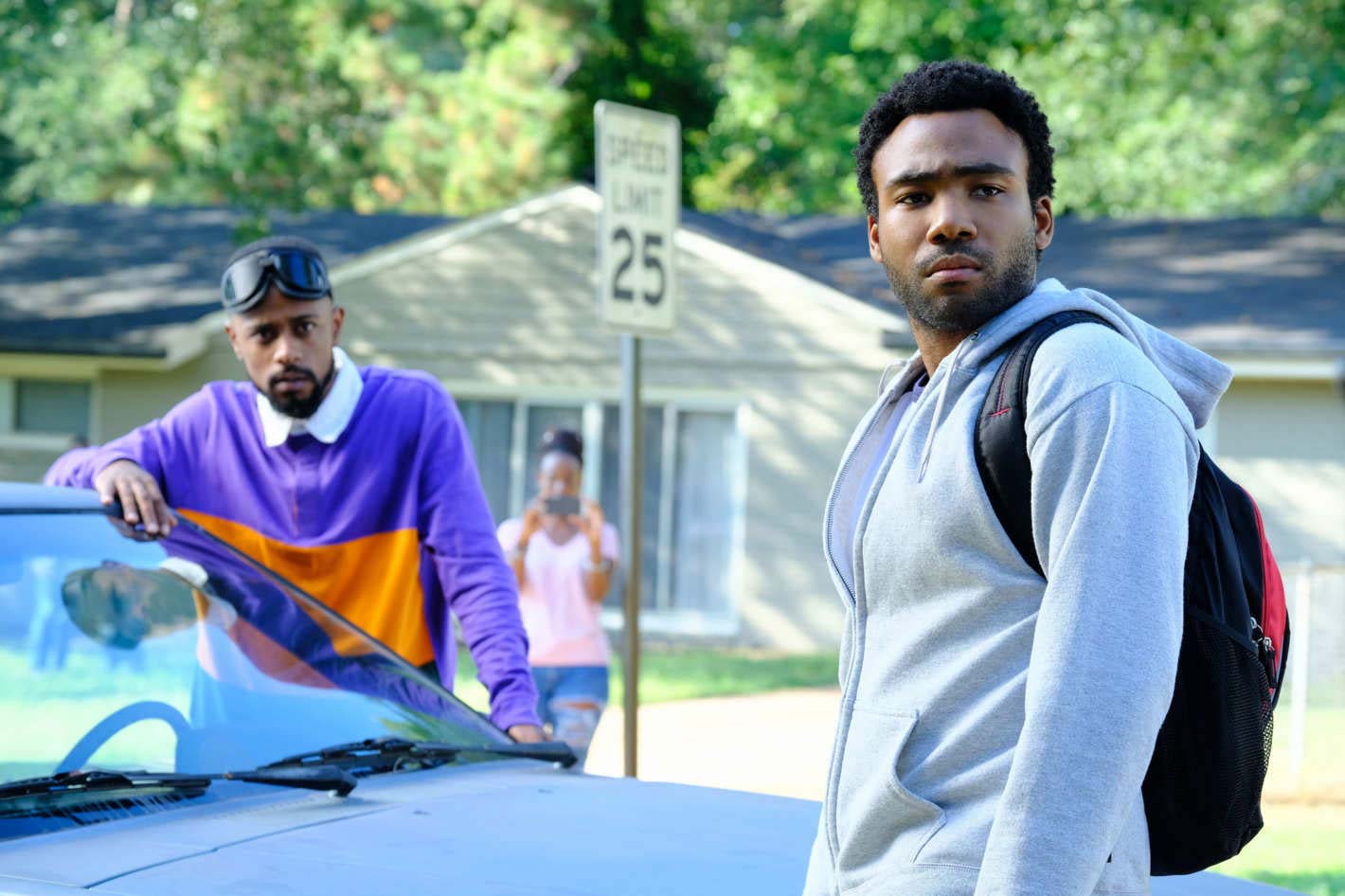
The following review is a collaborative effort between Jaro’s lead writers MJ VanDevere and Ayanna Winters.
In the season premiere of Atlanta, the crew has returned with an entirely new concept. Titled ‘Robbin’ Season,’ it’s fairly uncommon for an individual season to have its own name. But Atlanta is anything but ordinary, and we’ve learned to expect, and appreciate, the unexpected.
The opening scene itself offers a strong contrast to the generally cool vibe of the show. Initially, it feels innocent. We’re introduced to two male teens that are casually playing video games, discussing work, and their minor, mundane plans for the day. However, we quickly see a transition when the friends head out for a fast-food run. Setting up the tone for “Robbin’ season,” the teens rob Mrs. Winner’s, masks and all. They’ve messed with the wrong Mrs. Winners, though, and they soon become acquainted with a worker’s assault rifle. As the teens manage to escape, the armed worker sends bullets into the car, hitting an anonymous teenage girl in the backseat. Once she becomes aware of her untimely fate, her terrified scream of pain and agony is utterly haunting, as she’s left to die alone, abandoned in the street. Though anonymous, we feel for her. Although the opening scene is dark and disturbing, we’re promptly shifted back into the familiar “cool, calm, and collected” tone of Atlanta as the opening credits roll in, featuring breathtaking aerial views of the city; and, as always, a soundtrack that flawlessly captures the mood.
Earn remains homeless, as he manages to get evicted from his temporary storage unit home. As he makes his way to Al’s condo, a gloomy Darius greets Earn. The vibe is off, and there’s obvious tension in the air. Al, too, isn’t in the best mood, exchanging as few words as necessary. True to Atlanta’s comedy, though, we’re delighted to realize that Darius is still his eccentric self as he serves Earn an unappealing hamburger slider in his apron, warning him to be careful because it is “very, very, cold.” When Earn asks Al about what’s going on between him and Darius, Al refuses to talk about it. It’s clear that the roommates aren’t on good terms, but the reason remains unknown at this point.
During the car ride, the concept of “Florida man” is introduced to Earn by Darius. Through Darius’s narration we understand Florida man to be a representation of America’s violence and racism, or as he so eloquently puts it, an “alt-right Johnny Appleseed.” He is a state sanction menace to society whose mission is to discourage black persons from moving to and registering to vote in Florida. Jogging our personal memories of news headlines over the last decade, we at the very least chuckle as Darius’s explanation definitely rings true. Despite Earn’s dismissal of the concept, it is brought up again by Uncle Willie, portrayed by Katt Williams.
It is in Uncle Willie’s house that we feel at “home” and that is in part due to the detailed set design and on-point soundscape; Darius and Earn are told to take off their shoes as we see a large hole in the ceiling and knobs missing from doors as soulful music plays throughout the house. We watch as Uncle Willie refuses to follow the orders of the police officers called by the neighbors because of an argument between him and his girlfriend Yvonne about missing money. The local kids warn the officers that he has an alligator, to which Williams’ hilariously responds, “Them children ain’t lyin to you. I’m the alligator man.” As Earn tries to convince Willie to comply and step outside to speak with the police, family tensions are revealed and Earn’s own self-righteous is called out. The episode ends with the alligator slowly creeping out the front door and presumably Willie runs out the back door and down the empty street in his robe and house slippers. Katt Williams’ performance, the emotion he communicates with just a look, leaves us hoping that he is a recurring character, or at the very least has more dramatic roles on his horizon.






